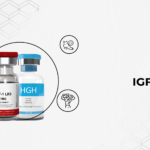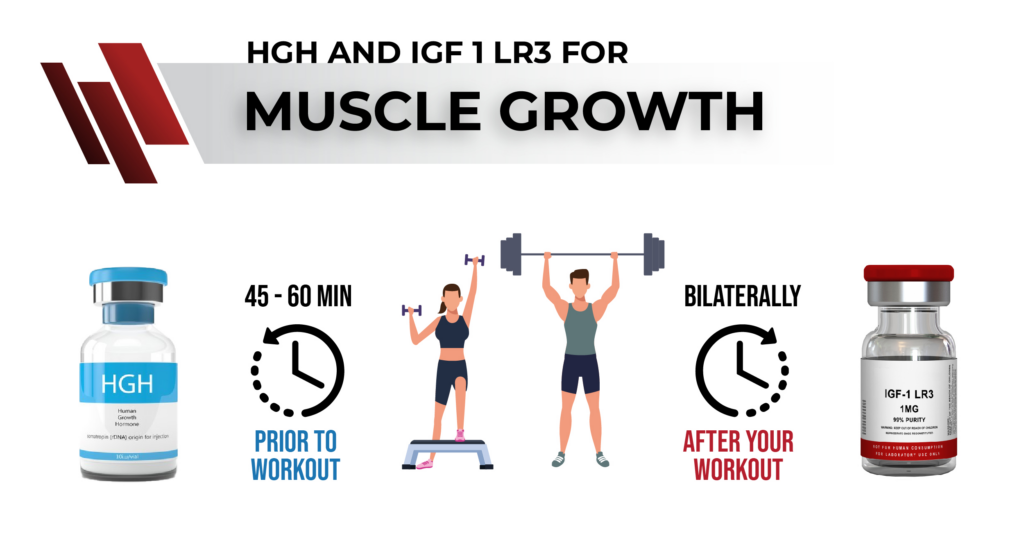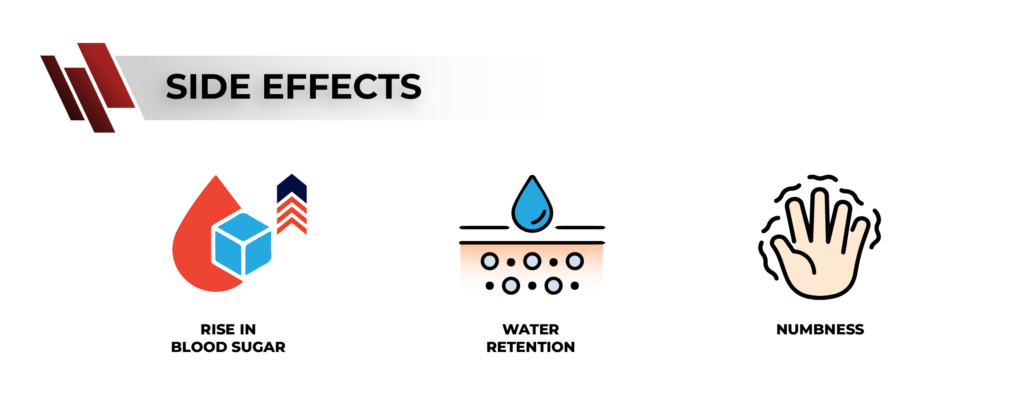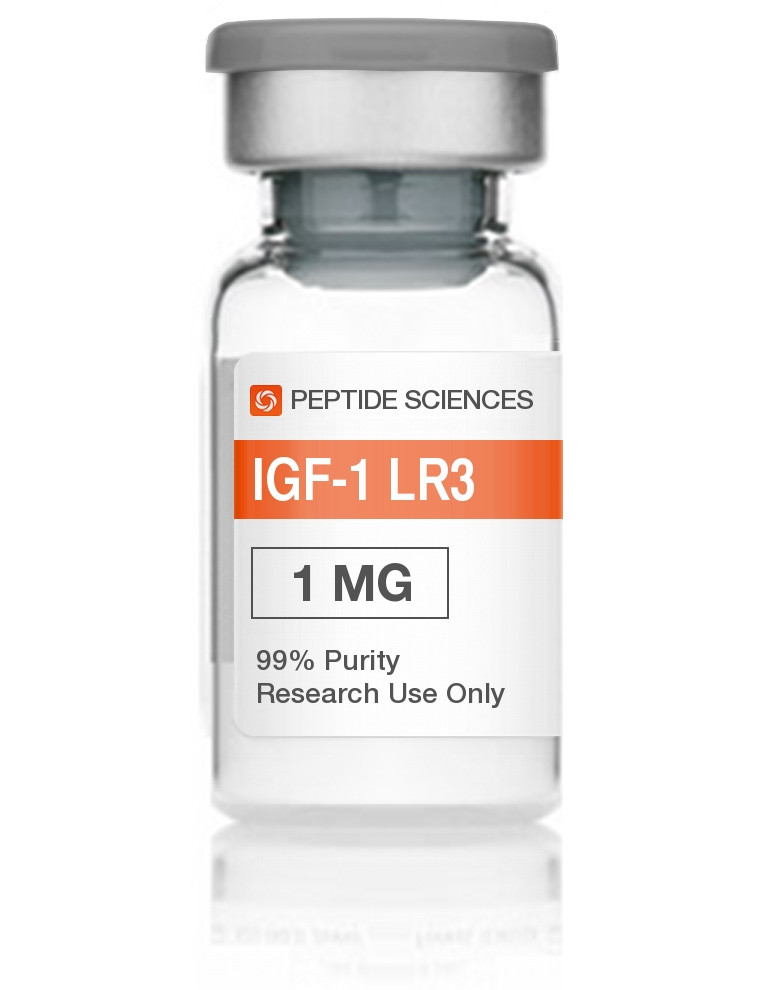
In the ever-evolving realm of health and fitness, enthusiasts are constantly seeking innovative ways to maximize the potential of the human body. One such intriguing avenue that has gained considerable attention is the combination of Human Growth Hormone and Insulin-like Growth Factor 1 Long R3.
While both of these substances have individually been studied for their remarkable effects on growth, recovery, and overall well-being, their tandem use has ignited a fervor of curiosity and speculation.
In this article, we delve into the science, benefits, and potential risks of the HGH IGF-1 LR3 stack. This thread will give you a comprehensive understanding of what this combination entails and how it may revolutionize the way we approach fitness, anti-aging, and overall health.
Whether you’re an athlete looking for a competitive edge, a wellness enthusiast eager to enhance your vitality, or a curious mind seeking to demystify the secrets of these two powerful growth factors, join me today on a journey to uncover the potent synergy of HGH and IGF-1 LR3.
Key Takeaways
- HGH or Human Growth Hormone can be used for its anabolic or fat loss properties
- IGF-1 or Insulin-like Growth Factor 1 can be used for its anabolic properties
- Combining HGH IGF-1 LR3 can yield even better anabolic results when used in a certain time method around your workout
What is HGH?
Human Growth Hormone (HGH), a peptide hormone produced by the pituitary gland, is integral to growth, development, and metabolism. When considering its application for muscle hypertrophy, multiple mechanisms come into play.
HGH plays a pivotal role in stimulating protein synthesis across various tissues, with a specific focus on skeletal muscle. This process is fundamental for muscle growth and repair. Additionally, HGH enhances the uptake of amino acids by cells, particularly in muscle tissues. Amino acids are essential building blocks for proteins, supporting the intricate process of protein synthesis necessary for muscle development.
Furthermore, HGH stimulates the liver to produce Insulin-Like Growth Factor-1 (IGF-1), a hormone with properties resembling insulin. IGF-1 is crucial in promoting muscle growth by augmenting protein synthesis and inhibiting protein breakdown. This dual action contributes significantly to the overall hypertrophy of muscle tissues.
In addition to its role in cellular processes, HGH stimulates the proliferation of muscle cells, actively contributing to the expansion of muscle tissue. Moreover, HGH influences fat metabolism, promoting the breakdown of fats. This process results in an increased availability of free fatty acids in the bloodstream, contributing to energy reserves for muscle function and growth.
What is IGF 1 LR3?
Insulin-Like Growth Factor-1 Long R3 (IGF-1 LR3) is a synthetic analog of IGF-1, a natural hormone that plays a crucial role in growth and development. IGF-1 LR3 has an extended half-life compared to the endogenous IGF-1, making it a potent tool for research and potential applications in muscle hypertrophy. Here’s an explanation of its properties and how it might influence muscle growth:
IGF-1 LR3 shares similarities with naturally occurring IGF-1 but has a longer duration of action. It functions by binding to the IGF-1 receptor, initiating a cascade of intracellular events that contribute to its anabolic effects.
One of the primary mechanisms through which IGF-1 LR3 promotes muscle hypertrophy is by stimulating protein synthesis. Similar to endogenous IGF-1, IGF-1 LR3 activates the signaling pathways that lead to increased protein synthesis in muscle cells. This heightened protein synthesis supports the growth and repair of muscle tissues.
Moreover, IGF-1 LR3 influences muscle cells by promoting the uptake of amino acids, the building blocks of proteins. This enhanced amino acid uptake contributes to the synthesis of new proteins, fostering an environment conducive to muscle hypertrophy.
Another significant aspect of IGF-1 LR3’s impact on muscle growth is its ability to inhibit protein breakdown. By interfering with the processes that lead to the degradation of proteins, IGF-1 LR3 helps to preserve existing muscle mass, allowing for a net gain in muscle tissue.
Furthermore, IGF-1 LR3 can enhance the proliferation of muscle cells, contributing to the overall increase in muscle mass. This involves stimulating the replication and differentiation of satellite cells, which play a key role in muscle regeneration and growth.
How Does HGH and IGF 1 LR3 Work Together?
The administration of HGH and IGF-1 LR3 together would simply massively increase the Insulin-like growth factor levels in the body. This is going to massively increase muscle mass, muscle growth, and could potentially even sprout new muscle cells. When combined with adequate amino acids, of course.
The two don’t technically need to be used together, but the two seem to have a direct muscle-building impact when used together. This peptide stack is one you’ll find in professional bodybuilder’s toolkit, especially at high doses.
The ability to drive muscle repair, help the nervous system recover, and even help with cognitive function makes it one of the best combinations you can get your hands on.
HGH and IGF 1 LR3 For Muscle Growth

As mentioned, HGH along with IGF-1 LR3 will combat muscle wasting effects, might increase muscle mass, and will also help with post-workout recovery. But what is the best way to use these for muscle growth?
- Take your HGH dose 60 – 45 minutes prior to your workout (taken subcutaneously in the stomach might potentiate fat loss). This will naturally increase HGH and IGF-1 levels in the body over the next 100 – 180 minutes
- Take your IGF-1 LR3 bilaterally after your workout – meaning you use half your dose on one side of your body and the other half dose on the other part (i.e. split 50/50 between your pecs)
Alternatively, using both in an environment before bed would be reasonable.
HGH and IGF 1 LR3 For Enhanced Recovery
IGF-LR3 from BiotechPeptides.com
The best place to purchase IGF 1 LR3 would be BiotechPeptides.com. This 1mg vial would run you $107 before specials, and because their quality is of such a high standard, you could get a lot out of one vial.
They’re also very kind enough to give a bit of background on the compound, which you don’t always see when it comes to research chemicals.
10% off with BP10
IGF-1 LR3 Overview
 Top Benefit: Enhanced muscle growth and repair
Top Benefit: Enhanced muscle growth and repair Forms: Injectable liquid
Forms: Injectable liquid Typical Dosage: Varies by purpose, but often around 20-50 mcg per day
Typical Dosage: Varies by purpose, but often around 20-50 mcg per day Typical Cycle Duration: Can be used long-term with breaks, or in shorter cycles of 4-8 weeks
Typical Cycle Duration: Can be used long-term with breaks, or in shorter cycles of 4-8 weeks Availability: Available through various sources but may require a prescription
Availability: Available through various sources but may require a prescription Side Effects and Dangers: Muscle and joint pain, and injection site discomfort
Side Effects and Dangers: Muscle and joint pain, and injection site discomfort Best Peptide Stack: Often stacked with other peptides like GHRP-6 for synergistic effects
Best Peptide Stack: Often stacked with other peptides like GHRP-6 for synergistic effects
- Enhanced Muscle Growth
- Improved Recovery
- Enhanced Athletic Performance
- Joint and Muscle Pain
- Potential Overgrowth
As mentioned, HGH along with IGF-1 LR3 will combat muscle wasting effects, might increase muscle mass, and will also help with post-workout recovery. But what is the best way to use these for recovery? The really interesting one to discuss here is IGF-1 LR3.
Known coaches like Alex Kikel can be loosely quoted to saying that LR3 doesn’t really allow for that much more muscle growth when compared to other methods of muscle growth. However, it really potentiates muscle recovery, far more so than pure HGH – in fact, he claims it to be similar in its ability to aid recovery to exogenous insulin.
HGH and IGF 1 LR3 For Anti-Aging
It is not advised to use IGF-1 LR3 for anti-aging since there is a clear connection between IGF-1 and an increase in cancer risk. Peptide therapy utilizes safe doses of HGH, which can reduce excess fat, improve metabolic syndrome, and improve blood sugar levels. However, IGF-1 is only used for muscle growth, and therefore, can increase cancer risk as well.
HGH and IGF 1 LR3 Dosage
HGH doses usually range between 2 – 4 units per day, but can be used up to 10 units if you are capable of managing your insulin sensitivity (and if you can afford it)… Natural growth hormone is cheap, in fact, it’s free. Purchased growth hormones are very expensive. Bodybuilders use 10 – 20 units per day for muscle growth, however, they can afford to purchase so much human growth hormone.
IGF-1 LR3 doses will vary greatly from person to person. IGF-1 LR3 isn’t something that has a bunch of hypertrophy studies behind it, but there is no denying it can increase muscle mass or potentiate more muscle cells. The most common doses range between 20 and 50mcg per day.
Cycle length for HGH can span (literally) years on end – for as long as you can afford it. IGF 1 LR3 should only be used in stints of 4 weeks with another 4 weeks off. This is to avoid the side effects associated with the chemical structure of IGF 1 LR3.
HGH and IGF 1 LR3 Side Effects

Both of these will have side effects on the human body, especially when taken at high enough dosages. Sure, you might experience a ton of cell growth, but do remember that cancer cells are also, well, cells. If you are at risk of cancer or if you already have cancer, neither HGH or IGF 1 LR3 is a good idea.
Other side effects of HGH include:
- An insulin response that might, with time, lead to insulin resistance. This is due to HGH’s ability to have your body dump glycogen into the bloodstream, thus, raising blood sugar
- There might be some water retention when doses are pushed extremely high. The human body has a nasty tendency to retain both salt and water when HGH doses are high
- Due to the water retention, you might experience some carpal tunnel or the numbing of the hands and feet. While this is annoying, it is expected from using Growth Hormone
Other side effects of IGF-1 LR3 include:
- Because of the mechanism of action, IGF 1 LR3 can dramatically lower your blood sugar levels. This can be quite dangerous in the wrong environment, so, pay great attention to this
Is HGH and IGF 1 LR3 Legal?
HGH is an illegal compound to use. You might be able to get it prescribed in a medical environment if you are in need of it, however, you would need to be tested for a growth hormone deficiency. IGF 1 LR3, on the other hand, may be purchased as a research chemical, but cannot be sold for ‘human consumption’. That said, most professional bodybuilders will use both Growth Hormone and IGF 1 LR3 despite the legal implications.
Conclusion: Is HGH and IGF 1 LR3 Stack Legit?
Absolutely. Human growth hormone and IGF-1 LR3 are used in conjunction with one another to accrue lean muscle mass with great results. The chains of amino acids are known for their ability to help you gain muscle due to anabolic effects, but can also have fat loss effects due to their glucose uptake. These can also be combined with mechano growth factor to increase muscle mass even more. Just be sure to check your insulin sensitivity and you’re off to the races! Also, if you are someone who has a cancer risk, it might also not be the best idea…
Can you take HGH and IGF-1 LR3 together?
Yes, absolutely. You can use these two together for fat loss or muscle gain effects.
When should I inject IGF-1 LR3?
The best time to inject IGF-1 LR3 would be post-workout.

